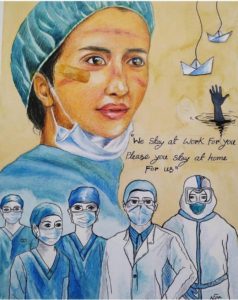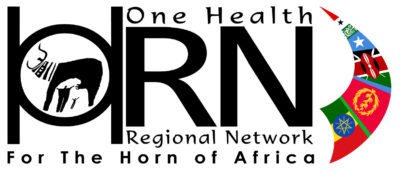 Somalia/Somaliland is one of the most complex and longstanding emergencies in the world as not only does it experience humanitarian crises characterised by both natural and man-made factors, it is among the African countries that have been hit by the COVID-19 epidemic. As a result, the major challenge is the severe shortage of health workers exist. The minimum number of 23 doctors, nurses, and midwives per 10,000 persons, set by World Health Organization, are far from being achieved: in Somalia/Somaliland on average are just 3–4 per 10,000 persons.
Somalia/Somaliland is one of the most complex and longstanding emergencies in the world as not only does it experience humanitarian crises characterised by both natural and man-made factors, it is among the African countries that have been hit by the COVID-19 epidemic. As a result, the major challenge is the severe shortage of health workers exist. The minimum number of 23 doctors, nurses, and midwives per 10,000 persons, set by World Health Organization, are far from being achieved: in Somalia/Somaliland on average are just 3–4 per 10,000 persons.
COVID-19 poses an additional challenge in already fragile context where it may further hinder access to basic services including health, leaving the population highly vulnerable. Presently, Somalia still lack sufficient access to vital health services. Health care workers (HCWs) are the essential division in contact with patients and are an imperative source of presentation to contaminated cases in wellbeing care settings; hence, HCWs are anticipated to be at likely hazard of contamination.
On a few occasions, misunderstanding among HCWs have delayed controlling endeavours to supply vital treatment, driven to the quick spread of contamination in clinics and the spread of infection in hospitals, which puts patients’ lives at risk. The level of knowledge and perceptions of HCWs toward COVID-19 stay hazy in Somaliland. In this respect, the COVID-19 widespread offers a special opportunity to examine the level of knowledge and perceptions of HCWs amid this worldwide wellbeing emergency. In addition, it will be of value to explore HCWs’ source of information of COVID-19 during this peak period.
The research project will address the health needs of Somali people and will generate knowledge that will be the starting point in raising awareness and possibly reduce the transmission, as well increase the collaboration between different stakeholders in health (HCWs, patients and communities) and environment.
The study, in line with the Somaliland National Strategic Plan II, addresses health sector as pillar 4 of the National Development Goals which is aligned to the Sustainable Development Goals: SDG1, SDG2, SDG3 SDG5. This research will build human capacity in surveillance, diagnostics and designing control strategies of infectious diseases that can be replicated in the Horn of Africa.
Objectives of this study are:
- To assess the level of knowledge on Covid-19 pandemic by Health Care Workers
- To understand the perception of Health Care Workers on Covid-19 pandemic
- To explore HCWs’ source of information and data management of COVID-19 during this peak period.
The study will adopt a cross-sectional design with a quantitative approach and will be carried out in the six regions of Somaliland, namely Awdal, Saahil, Maroodi-Jeeh, Toghdeer, Sanaag and Sool. Thus study will target the HCWs in all six regions’ main referral hospitals.
There are limited direct benefits to participants in this research. However, the findings of the study may help to reveal the Knowledge and Perceptions of COVID-19 among Health Care Workers in Somaliland and will be shared with government and other stakeholders. This will enable government and other stakeholders to take transparent and evidence-based planning for intervention measures to improve the health of HCWs, patients and communities. Moreover, findings from this study will help to inform policies to mitigate the public health sector and the wider population beyond borders are urgently needed help to changes in the behaviour.
